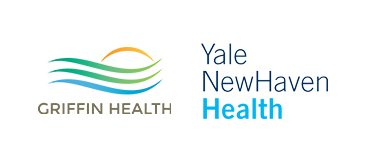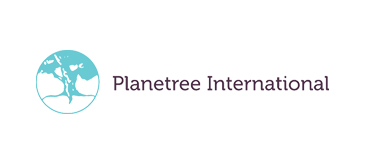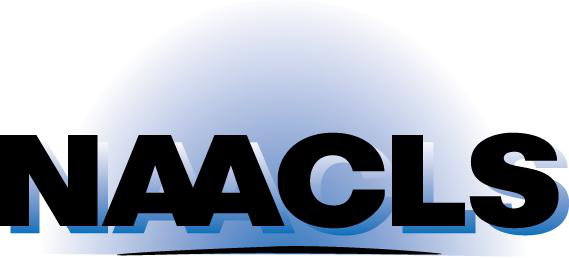Become Qualified to Work in a Clinical Laboratory
Get the specialized training that opens doors to clinical labs everywhere. Gain a professional’s understanding of laboratory work and start making a contribution from your first day on the job, instead of requiring additional training. All while commanding a salary commensurate with your knowledge and skill. For those with undergraduate degrees in biology, chemistry, biochemistry, or another general science — which don’t qualify you for clinical lab positions — our M.S. is the degree you need.
Gain the In-Depth Knowledge You Need to Succeed
Our program of study is essentially your passport to work in a diagnostic clinical lab, in research, or in industry. Over the span of two years, you will study clinical chemistry, hematology, immmunohematology, immunology, and microbiology. Your coursework will include didactic courses, laboratory instruction, and clinical experience rotations, during which you will spend two to four days a week at a local or area clinical lab. There you will engage in laboratory testing and have the opportunity to put your ever-increasing body of knowledge into action.
You will also complete a capstone course in which your knowledge and experience will be put to work on a research project, clinical project, or practical experience.
Prepared for Success
Our program fulfills the requirements for taking the American Society for Clinical Pathology (ASCP) Board of Certification (BOC) exam to become a board-certified medical laboratory scientist. Although this certification is not required to work as a medical laboratory scientist in all states, with our degree in hand, you will always be ready to take that next step to certification if you desire.
Currently, the University of New Haven is the only university in Connecticut that offers a master’s degree in medical laboratory science.
View Program Handbook
-
Mission, Vision & Core Objectives
Mission
The mission of the Medical Laboratory Science program is to provide a rigorous, competitive undergraduate training program to prepare graduatesto become competent medical laboratory scientists who demonstrate ethical standards and promote patient-centered care.
Vision
The vision of the Medical Laboratory Science program is to become a destination program for medical laboratory science in the region recognized for quality faculty, strong industry partnerships, and successful graduates. All graduates from the MLS program will become competent, ethical, certified MLS professionals prepared to become an essential member of the healthcare team.
Objectives
Professional Communication: To interact and communicate effectively by presenting information in oral and written formats, collaborating with professionals, peers, and clients, expressing ideas clearly, and giving and receiving feedback to serve the needs of patients, the public and members of the health care team.
Professional Competence: To possess knowledge, skills, and abilities to acquire an entry level position as a Medical Laboratory Scientist and to successfully complete the ASCP BOC MLS examination.
Professional Ethics and Conduct: To learn to treat patients and colleagues with respect, care, and thoughtfulness, to perform duties in an accurate, precise, timely and responsible manner, to maintain strict confidentiality of patient information and test results and to exercise professional judgment, skill and care while meeting established standards of the MLS profession.
Professional and Personal Development: To continuously improve and apply medical laboratory skills and knowledge and share such with colleagues, other members of the health care community and the public.
-
Essential Program Requirements
The National Accrediting Agency for Clinical Laboratory Science (NAACLS) requires that the MLS program publish the following list of essential program functions. These “Technical Standards/Essential Functions” make up the non-academic requirements of the profession that all students must demonstrate to succeed inthe UNewHaven MLS program. The essential professional, communication, and technical requirements for Medical Laboratory Sciences students are listed below. If there are changes in these essential requirements, those changes will be published, and students will have the opportunity to discuss any changes with the Program Director and instructors in the Medical Laboratory Sciences Program.
The Technical Standards/Essential Functions required for successful completion of the MLS program at the University of New Haven are listed below. In accordance with the university’s commitment to providing equal access for individuals with disabilities under Section 504 of the Rehabilitation Act of 1973 and the Americans with Disabilities Act Amendments Act (ADAAA of 2008), students seeking reasonable accommodations to meet these requirements should contact the Accessibility Resources Center to ensure appropriate accommodations can be made in a timely manner.
Professional skills
- Maintain professional decorum and composure in a wide variety of situations
- Maintain confidentiality and integrity
- Follow directions, be able to make decisions, prioritize tasks, and work on multiple tasks simultaneously
- Work independently and in cooperation with others
- Apply acquired learned skills and knowledge to new situations
- Work with potential biologic, chemical, radiologic, mechanical, and electrical hazards
- Maintain personal hygiene and neatness appropriate to the professional workplace
- Achieve regular, reliable, and punctual attendance at classes and regarding their clinical responsibilities
Communication skills
- Communicate effectively and efficiently with coworkers and members of the healthcare team
- Read and comprehend written material
- Record information accurately and clearly
Technical skills
- Complete fine repetitive movements such as pipetting
- Manipulate lab instruments
- Demonstrate proficiency to work with flammable and infectious materials, hazardous chemicals, and electrical equipment
- Demonstrate proficiency in all areas of the clinical lab
- Work in areas with distracting noises, unpleasant odors and in close proximity to fellow workers
- Perform all diagnostic procedures in the clinical lab
- Perform delicate manipulations of clinical specimens, clinical lab equipment, tools, and instruments
- Perform diagnostic procedure and venipuncture safely and accurately
- Adhere to standard precautions and meet safety standards applicable to the clinical laboratory
- Accurately identify, describe, and record fine details of clinical specimens both macroscopically and microscopically
- Read and interpret charts, graphs, and labels
- Read and interpret instrument panels and printouts
- Independently perform all aspects of diagnostic procedures in the clinical lab and report results accurately and timely
-
Program Outcomes
| Rates |
Academic Year 2022-2023* |
Academic Year 2023-2024* |
Academic Year 2024-2025* |
3-Year Averages |
| CERTIFICATION RATES: For program graduates who took the ASCP BOC exam within one year following graduation |
100% pass rate (ASCP BOC MLS certification) |
67% pass rate (ASCP BOC MLS certification) |
86% (ASCP BOC MLS certification) |
80% pass rate (ASCP BOC MLS certification) |
| ATTRITION/GRADUATION RATES: For students who began the last year of the program |
100% graduation |
100% graduation |
100% graduation |
100% graduation |
| PLACEMENT RATES: Graduates who found employment (in MLS or a closely related field) and/or continued their education within six months of graduation |
100% placement |
100% placement |
86% placement |
93% placement |
*Class size information (number of graduates)
2022-2023: 2; 2 of 2 students attempted and passed MLS certification exam
2023-2024: 6; 6 of 6 attempted exam, 4 of 6 students passed MLS certification exam
2024-2025: 7; 7 of 7 students attempted exam, 6 of 7 students passed MLS certification exam
These are combined results for all MLS program graduates (both B.S. and M.S. degrees)


